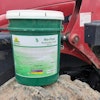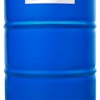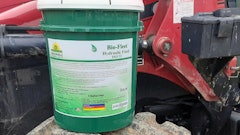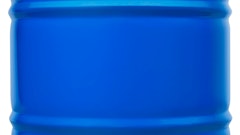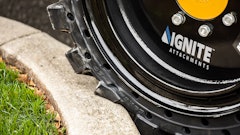Article originally published on Noria.com
Zinc has been a key additive constituent in hydraulic oils, as well as the majority of oil types, for decades. It primarily is used as an anti-wear agent or as an antioxidant.
These zinc-based additives are sacrificial, which means they are used up and depleted as they do their job. However, it's not simply the metal zinc added to the oil that performs this function. There is a chemical reaction between zinc oxides and an organic thiophosphoric acid that produces an effective resultant known as zinc dialkyldithiophosphate (ZDDP).
Zinc-based hydraulic oil is widely used for a number of reasons. Under boundary conditions, a sacrificial layer of anti-wear additive (typically zinc-based) is established on the load-bearing surface of machine components to help protect against the results of friction. Anti-wear additives are most effective in moderate to severe load applications, while oiliness agents are utilized in mild conditions. Extreme-pressure (EP) additives are best in severe applications.
The disadvantages of zinc-based additives include their corrosion of certain metals and environmental impact. Oils with zinc levels that are too high have a history of leading to the corrosion of some metals, such as yellow metals, as they chemically attack the metal surfaces.
(read the entire article, "Advantages of Zinc-free Hydraulic Oils"...)
